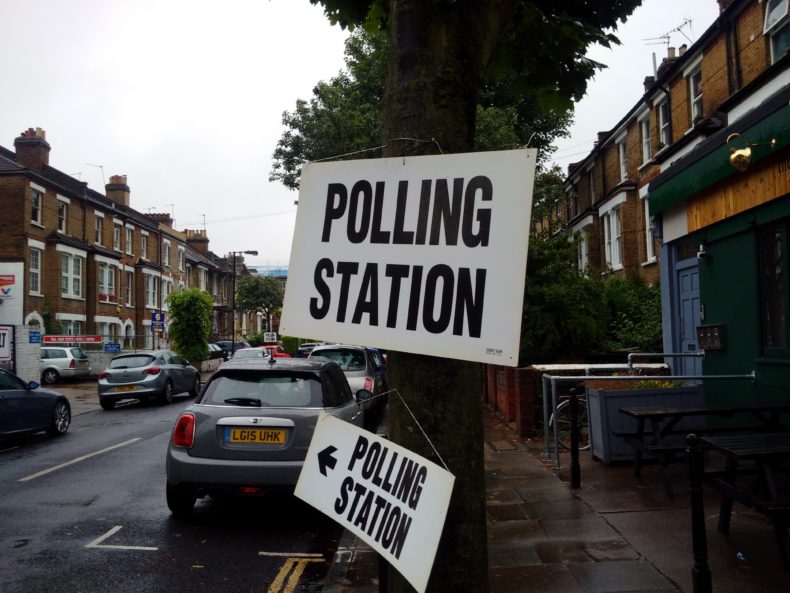Publishing exit polls in advance is banned – and that covers retweeting how someone voted

Section 66 of the Representation of the People Act 1983 often gets an outing around this time of year as someone gets in trouble for publicising figures from a postal vote opening. (Short version: don’t go to a postal vote opening and then publish figures or claims about who is winning or losing.)
By now, that is a fairly familiar story. Although the ability of new people to make the same mistakes as others have already made in the glare of publicity is such an inherent part of human nature I wouldn’t bet on it not happening again, and indeed Dominic Raab got close to troublesome territory with his comments in 2019.
But there’s also another, less common, mistake people may make, especially those armed with social media accounts or social media monitoring tools, for Section 66a includes a ban on exit polls appearing before the close of polls:
66A Prohibition on publication of exit polls
(1) No person shall, in the case of an election to which this section applies, publish before the poll is closed–
(a) any statement relating to the way in which voters have voted at the election where that statement is (or might reasonably be taken to be) based on information given by voters after they have voted, or
(b) any forecast as to the result of the election which is (or might reasonably be taken to be) based on information so given.(2) This section applies to–
(a) any parliamentary election; and
(b) any local government election in England or Wales.(3) If a person acts in contravention of subsection (1) above, he shall be liable on summary conviction to a fine not exceeding level 5 on the standard scale or to imprisonment for a term not exceeding six months.
(4) In this section–
“forecast” includes estimate;
“publish” means make available to the public at large, or any section of the public, in whatever form and by whatever means;
and any reference to the result of an election is a reference to the result of the election either as a whole or so far as any particular candidate or candidates at the election is or are concerned.
(This provision has also been applied to other contests, including Police and Crime Commissioner elections.)
Note carefully the wording of 1(a). It doesn’t stop an individual* saying on polling day (or indeed after receipt of a postal vote), “I’ve just voted Lib Dem”. Indeed:
But report how others say they have voted? That’s headed for trouble, whether it is a media report about individual postal voters or using a social media search to gather up mentions of either postal voters or on-the-day voters saying how they have voted. That is because doing that falls foul of the ban on “statement[s] relating to the way in which voters have voted at the election where that statement is (or might reasonably be taken to be) based on information given by voters after they have voted”. And so that would also be a breach of the law.**
It is dangerous territory too for someone to retweet or otherwise reshare messages from other people in which those other people say how they have voted. Because that too would be making a “statement relating to the way in which voters have voted at the election where that statement is (or might reasonably be taken to be) based on information given by voters after they have voted”.***
* An individual is safe. But a tweet about “my partner and I have just…”? Not so safe even if it is hard to see how the CPS would view it as something to proceed to a prosecution over unless there are unusual circumstances
** However, as Matrix Chambers has pointed out previously, you might have some fun with an appeal under the European Convention on Human Rights and its free speech provisions.
*** Would the authorities decide to proceed with a prosecution? There aren’t test cases or test decisions really to guide in judging this, but it’d be unwise therefore to gamble with the hope that the police or CPS decide not to be bothered about this law, especially if someone is doing it on a large scale or systematically. Especially as even if they don’t proceed, there can still be the round of bad media coverage from another party being able to say they’ve reported you to the police for breaking the law.
Leave a Reply